#stephen bishop
Text

#stephen bishop#actor#suit#open shirt#hat#handsome#sexy#style#sharp#suave#men's fashion#phyne#attractive#fine#run the world
7 notes
·
View notes
Text

Spooky Tooth Co-founder, “Dream Weaver” Gary Wright Dies at 80
- Keyboardist and singer collaborated with George Harrison and Ringo Starr
Gary Wright, the Spooky Tooth co-founder who pioneered synth rock with 1975’s the Dream Weaver, has died.
Wright was 80 and had been diagnosed with Parkinson’s disease and dementia.
Ambrosia, the band that backed Wright on his final gigs, called the musician “a big part of our hearts,” in announcing his death.
“Gary's iconic music added so much to our shows, and we always enjoyed having him with us,” the group said.
Wright was an original member of Spooky Tooth before going solo. Former Traffic (and later, Fleetwood Mac) guitarist Dave Mason said,” there’s a certain (and sure) brotherhood from those days, during that incredible era of rock ’n’ roll.”
“He leaves us all with great songs and was one of the good guys in this business,” Mason said of Wright. “I’ll miss this lifetime friend. Blessings, Dream Weaver.”
Wright collaborated with George Harrison throughout the 1970s, beginning with All Things Must Pass. His biggest solo success came with his 1975 album, the Dream Weaver, whose title track and “Love is Alive” became Wright’s best-known songs - numbers he would perform with Ringo Starr’s All Starr Band in the following century.
“Gary's vibrant personality and exceptional talent made every moment together truly enjoyable,” Stephen Bishop said. “His legacy will live on for many years to come.”
Wright released his final solo album, Connected, in 2010.
“May Gary Wright rest in peace and love,” Todd Rundgren’s Spirit of Harmony Foundation said.
9/5/23
#gary wright#spooky tooth#dave mason#traffic#ambrosia#stephen bishop#george harrison#ringo starr#the beatles#spirit of harmony foundation#fleetwood mac#ringo starr & the all starr band
12 notes
·
View notes
Text





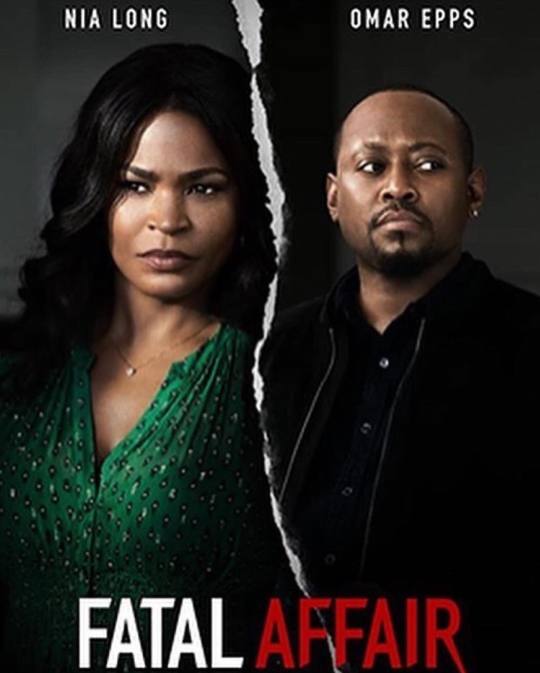


I've seen 4 out of 7. They were pretty good. 🤷🏾♀️
#Repost @blvckcouples
——
the fact they recycling the same actors 💀😩 which one was the best? @blvckcouples
{Comment Bellow}
Obsessed
youtube
The Perfect Guy
youtube
When The Bough Breaks
youtube
The Intruder
youtube
Fatal Affair
youtube
Til Death Do Us Part
youtube
No Good Deed
youtube
#beyoncé#idris elba#michael ealy#sanaa lathan#morris chestnut#jaz sinclair#regina hall#dennis quaid#megan good#nia long#omar epps#annie ilonzeh#taye diggs#stephen bishop#taraji p. henson#ali larter#black movies#Youtube
15 notes
·
View notes
Text
Video Review: Les Misérables, 3rd National Tour, 2000, Act II (long)
Here’s the second half of my review of this complete Les Mis performance, which I wrote some time ago but I'm sharing again in honor of Barricade Day.
Main Cast
Jean Valjean: Ivan Rutherford
Javert: Stephen Bishop
Fantine: Joan Almedilla
Thénardier: J.P. Dougherty
Mme. Thénardier: Aymee Garcia
Marius: Tim Howar
Enjolras: Kevin Earley
Éponine: Sutton Foster
Cosette: Regan Thiel
Grantaire/Bamatabois: Trent Blanton
Young Cosette: Stephanie Mieko Cohen
Gavroche: Christopher Carlson
“Upon These Stones,” “On My Own,” “The Barricade,” “Javert at the Barricade,” “Little People”
Sometimes the smallest details can change our impressions of a character. For example, Sutton’s Éponine purposefully gets Marius’s attention by touching his back as she walks past him. Éponines who do this create a different sense of their desires and motives than Éponines who don’t. There’s also a big difference between Éponines who sing “Little you know! Little you care!” alone after Marius leaves and those who, like Sutton here, sing it as an outburst directly to Marius’s face, angrily snatching the letter from his hand. Every Éponine I ever saw in both the 3rd National Tour and the 2006 Broadway revival did the latter. Personally, I think it’s a bit petulant compared to singing the line alone. But if we assume she’s come to the barricade hoping Marius will finally love her for joining the battle – which her purposefully letting him know she’s there might imply – and yet he still doesn’t get it, I suppose an outburst to his face is understandable.
I like that neither Tim’s Marius nor Ivan’s Valjean are too harsh with Éponine. Tim strikes a good balance between stern and caring, while Ivan is nicely gentle instead of automatically treating her like a spy for Javert. His letter-reading is good too, though I wish the camera showed his face instead of focusing on Éponine as she eavesdrops.
I’ve written about Sutton’s “On My Own” before, but I’ll restate my feelings here. I honestly don’t think anyone has ever sung the song more beautifully; her voice is like flame and crystal combined in sound form. And her journey from happy dreams to raw anger and despair is vivid and deeply felt without a trace of sentimentality. I can’t fault it, even though I personally don’t care much for angry renditions of this song.
The barricade boys’ pledge to hold the barricade and defiance of the officer’s warning are gripping as they should be, especially the magnificent high A sung by Ben Davis’s Feuilly on “We’ll be there!” It’s no wonder that he went on to sing operatic roles as well as musical theatre.
Christopher’s Gavroche comes into his own in “Little People.” His Act I might have been slightly bland, but here I can fully believe in his spunk and cheek.
Kevin’s commanding presence as Enjolras and the rich-voiced stolidness of Stephen’s Javert are still outstanding.
The tone of the “Little People” scene definitely changes when the now usually-cut lines before and after “Shoot me now or shoot me later…” are included. Instead of just a few boys clamoring ineffectually in the background to shoot Javert, the barricade erupts into chaos after Javert is outed as a spy, with Courfeyrac, Feuilly and others forming an impromptu firing squad to shoot him in blatant defiance of Enjolras’s orders, and with Enjolras and Combeferre’s cooler heads just barely prevailing in the end. I still wonder why the scene was written this way, when it has no basis in the novel. I can only assume the musical’s authors thought it would be more moving to see the barricade boys come close to falling into bloodlust and anarchy under the stress of adversity, only to ultimately choose idealism, courage and unity, than if they were always disciplined and unified. Maybe on the stage, this is true.
At any rate, I like the detail of Gavroche grabbing a gun to join the impromptu firing squad and a woman trying to wrest the gun from him. It’s a welcome, subtle touch of comic relief and fully in character for the boy.
“A Little Fall of Rain,” Night of Anguish,” “First Attack, “Drink With Me”
Kudos to Sutton for remembering to act wounded even before she collapses, climbing very slowly down the barricade, having to stop and rest midway down, and then clutching Marius for support. Not all other Éponines do that. During the song she never cries out or writhes in pain, but I think it works. The motionless tension of her body makes me assume that her Éponine is hiding her pain from Marius, which fits with the lyrics, and of course lets us focus on the moment’s tender emotions. In the last verse, I like the way she gently fades away, loosening her grip on Marius’s arm and lying completely still except to move her lips as she sings, but then, at the very end, finding the strength to pull herself up and kiss him. It evokes the way Hugo’s Éponine lies so motionless that Marius thinks she’s already dead, only to open her eyes and utter her love confession.
Tim’s concern and tenderness compliment Sutton’s performance perfectly, and though his grief is quiet and understated, it’s still poignant.
The moment when Enjolras comforts Marius is understated yet touching too. Kevin’s Enjolras is clearly pained by Éponine’s death but seems at a loss for what to say or do for Marius. In the end, a silent shared arm-clasp is all that’s needed.
When Valjean arrives, the Amis take a fairly calm, wary yet respectful approach to interrogating him, lowering their guns as soon as they realize he’s not a real National Guardsman. I’m tempted to like this better than versions like the 2012 movie where they’re aggressive and almost ready to shoot him on sight, although the latter is valid too.
During the battle, I see another detail I remember reading about in reviews. When Kevin’s Enjolras kneels down to assist the student who’s been wounded by the sniper, only to be narrowly missed by another bullet from said sniper, he falls backward and sits paralyzed in shock, looking like “a frightened little blond boy” (as I remember one fan writing) until Valjean helps him up. I know that some fans can be touchy about Enjolras showing any weakness, but I personally don’t mind this detail. It’s only a brief moment, and like the above-mentioned moment with Marius, it’s a humanizing image that makes Enjolras believable not only as a staunch leader, but as a young man facing the threat of death for the first time. (Yes, I know Hugo’s Enjolras also fought in 1830, but the musical never mentions this.)
Besides, I love the way Grantaire snaps out of his motionless stupor to reach out to Enjolras when that brush with death occurs.
Stephen and Ivan are both excellent in the releasing scene. Stephen moves believably from rage and disgust at having Valjean as his executioner, to confusion when he’s freed, to smug disdain when he thinks he’s figured out Valjean’s motive, to a slow, speechless, dumbfounded exit, while by contrast Ivan’s Valjean remains staunchly calm, not losing his temper at Javert’s insults, but firmly committed to doing the right thing.
Moving on to “Drink With Me,” Trent’s Grantaire puts an interesting spin on his solo by addressing specific lines to specific individuals, to whom (if we know the Ami’s individual personalities in the novel) each line has the most meaning. “Can it be you fear to die?” he directs to Joly, the hypochondriac. “Will the world remember you when you fall?” is aimed at Feuilly, the orphan who has no family to remember him. And of course “Will your death be one more lie?” he addresses to Enjolras.
Then we have a beautiful Enjolras/Grantaire reconciliation, which unfortunately the cameraperson only shows us in part. Enjolras first stares at Grantaire, then angrily grabs his shoulder, with poor Grantaire shielding his face as if he expects to be hit. But then they gaze at each other, for a long time, and then finally, warmly clasp hands. It’s too bad that the cameraperson chooses to pan around the stage during their long shared gaze instead of showing us their expressions leading up to the hand-clasp. But I suppose the E/R relationship wasn’t quite at the fandom’s forefront in 2000 the way it is now (it was already a popular ship, if I remember correctly from my middle and high school days, but slightly less so than Éponine/Marius or Enjolras/female OCs).
Tim’s soft, sad delivery of Marius’s verse at the end is very touching and I like the consoling pat on the knee Trent’s Grantaire gives him before walking away
The ensemble work is excellent, as always.
“Bring Him Home,” “Dawn of Anguish,” “Second Attack (Death of Gavroche),” “The Final Battle,” “Dog Eats Dog”
Ivan’s “Bring Him Home” is beautiful.
I hope that someday, somehow I see a production of Les Mis that includes the “Drink With Me” reprise. It add so much more emotional weight than there is when the women simply hurry off and the battle commences. By the way, here’s a question for people who were fans before the cuts were made. Did the “Drink With Me” reprise always end with Enjolras and Marius clasping arms at the top of the barricade? Was this a universal part of Nunn and Caird’s staging? It’s a beautiful reinforcement of Enjolras and Marius’s friendship and Marius’s now-unwavering loyalty to his friends, but still, if I were to direct a new production, I’d be tempted to have Grantaire share that moment with Enjolras instead. I think it might be a better moment for their reconciliation than “Drink With Me.”
Christopher’s Gavroche is still less vivid than others I’ve seen, and the moment of his death looks slightly unconvincing (he breaks the fall with his hands a bit too obviously), but he still gives a solid performance overall.
To the very end, Kevin’s Enjolras is fully believable as the staunch, dignified, heroic leader, yet still a human being. His slow descent from the barricade after Gavroche’s death – the only movement onstage while everyone else is frozen in shock and grief – and seeming obliviousness to the offstage officer’s voice as he stands and ponders what’s happened and what’s to come is both poignant and true to the spirit of Hugo’s Enjolras. We can sense his pain, yet he faces it with stoic dignity and undying courage. His “Let others rise…” is powerful, even though he neither shouts nor goes for the high note on “…is free!”
And then there’s the heartbreaking moment after Marius falls, when Enjolras hurries to him, throws poor Grantaire aside, and tries vainly and irrationally to revive his seemingly dead friend before rushing off to his own death. Some might argue that this is out of character for Hugo’s Enjolras, and it’s definitely not realistic for the middle of a battle when, as Hugo repeatedly writes, you can’t stop for anything. But it’s moving, although I would have liked a more meaningful last interaction with Grantaire than just a quick glance.
The fall of the barricade and the tableau of Enjolras’s body on the barricade are epic and heartbreaking, as always. No other staging can surpass the original.
J.P.’s Thénardier definitely feels more alive in his sinister scenes than in the comedy scenes. I’m not quite sure why I always remembered him as being mainly a comic Thénardier. It was probably his looks, I’m sorry to say – it was too easy to mentally pigeonhole him as “the funny fat guy.” At any rate, his “Dog Eats Dog” is deliciously dark and mocking.
“The Sewers,” “Javert’s Suicide,” “Turning,” “Empty Chairs at Empty Tables,” “Every Day”
I remember one thing J.P.’s Thénardier used to do that annoyed fans back in the day was to silently break the fourth wall by visibly waiting for the audience to applaud after “Dog Eats Dog,” then shrug his shoulders when they didn’t. He did this the first time I saw the show. But thankfully he doesn’t do it here.
Kudos to Ivan for actually carrying Marius throughout the sewer sequence. We get none of the standard “Marius tries his best to look unconscious and disguise the fact that he’s actually walking while Valjean supports him” business seen in so many other performances.
Stephen gives a powerful rendition of “Javert’s Suicide,” both in his sumptuous voice and in his vivid rage and torment.
“Turning” is poignant, as it should be. The fact that the pregnant woman is played by a black actress instantly makes me think of the fandom’s widely-accepted headcanon of Musichetta as a woman of color – as far a my imagination is concerned, it’s her, and the unborn baby’s father was either Joly or Bossuet. I’ll also imagine that she’ll eventually meet Marius and Cosette and they’ll help to support her and provide for the baby.
Tim’s “Empty Chairs at Empty Tables” is beautiful and moving. His warm, darkly-shaded voice is wonderfully suited to the music, and while his grief is subtly conveyed, it can still be deeply felt. This is a trend throughout this particular performance, I think: the story is told with as little sentimentality as the material allows, and the male characters in particular are all played with a stoicism not seen in other portrayals, but their emotions can still be felt no matter how quiet they are.
The uncut “Every Day” is gently and sweetly performed by Regan, Tim, and Ivan when he joins them. The ending is adorable, with Marius and Cosette holding hands and almost face-to-face when they notice Valjean watching them, and being the modest 19th century pair they are, quickly draw apart and try to look “seemly,” only for Valjean to lovingly rejoin their hands. Unfortunately, Regan goes a bit off-pitch on her final note, but that note tends to be a hit-or-miss one for most Cosettes.
“Valjean’s Confession,” “Wedding Chorale/Beggars at the Feast”
Ivan and Tim are both spot-on in “Valjean’s Confession.” Ivan is more stoic than Hugo’s Valjean is in this scene, but this is true of his Valjean throughout, and as always, in his subtle way he still conveys his struggle and pain. I’ve heard other Valjeans be more forceful and demanding on “Promise me, M’sieur, Cosette will never know!” but the way Ivan’s voice becomes so soft and pleading instead is probably even more disarming to Marius.
Moving on to the wedding, it’s so nice to hear Marius’s exchange with the Thénardiers uncut. Éponine is remembered, her parents earn more hate with their cold, selfish response, and they build up their revelation about Valjean with just the right preamble to entice Marius – even if they do have to chase him around the ballroom to do it. I notice that Tim’s Marius tries to walk away before Thénardier brings up the “murder” (presumably he thinks they’re just going to reveal that Valjean is a convict, which he already knows), but a soon as Thénardier makes the murder claim, he becomes concerned and listens. This is different from Niklas Andersson’s London Marius in the same year (so far the only other video I’ve watched of the uncut scene), who stalked away in disgust after Thénardier made the murder claim, refusing to believe that Valjean could be a killer as well as a thief.
Regan’s Cosette looks appropriately startled and confused after Thénardier drags her into a wild spinning dance and then Marius punches him. I wonder if she recognized him in that moment?
J.P. and Aymee do a fine job with the Thénardiers’ final flourish. Just enough slapstick to get laughs (e.g. Aymee’s pantalette-flashing fall when she tries to curtsy, the business with the dropped silver later), but not enough to turn them into caricatures. “Beggars at the Feast” is just the right exuberant uplift (however cynical the lyrics) that we need before the finale.
Epilogue
As is characteristic of this cast, Valjean’s death and heavenward ascent are depicted calmly and gently, with tears and sentimentality kept to a minimum, but with genuine love and warmth in abundance. Ivan’s Valjean infuses his last moments with quiet dignity and tenderness, as well as beautiful soft singing, while Joan’s Fantine is appropriately angelic, and Regan’s Cosette, Tim’s Marius and Sutton’s Éponine beautifully round out the scene. The moment when Fantine kneels before Valjean and he reaches out to take her hand, only for Cosette to take her mother’s place for their last reunion, is very touching. So is the way Regan’s Cosette lingers over her father’s lifeless body, staring into his face in utter disbelief until finally Marius gently draws her away. The little hug she gives Marius near the end of the final chorus is also as sweet as can be (as I’ve mentioned before, they were a couple in real life at the time).
The final chorus is magnificent, as it always should be. An excellent end to an excellent performance.
#les mis#les miserables#performance review#bootleg#video#3rd national tour#us tour#act ii#los angeles#2000#ivan rutherford#stephen bishop#sutton foster#tim howar#kevin earley#regan thiel#j.p. dougherty#aymee garcia#trent blanton#complete performance
7 notes
·
View notes
Video
youtube
Stephen Bishop ~ On And On ~ ~ ~
Down in Jamaica
They go lots of pretty women
Steal your money
Then they break your heart
Lonesome Sue, she's in love with old Sam
Take him from the fire into the frying pan
On and on
She just keeps on trying
And she smiles when she feels like crying
On and on, on and on, on and on
Poor old Jimmy
Sits alone in the moonlight
Saw his woman kiss another man
So he takes a ladder
Steals the stars from the sky
Puts on Sinatra and starts to cry
On and on
He just keeps on trying
And he smiles when he feels like crying
On and on, on and on, on and on
When the first time is the last time
Can make you feel so bad
But if you know it, show it
Hold on tight
Don't let her say goodnight
Got the sun on my shoulders
And my toes in the sand
Woman's left me for the some other man
Aw, but I don't care
I'll just dream and stay tan
Toss up my heart and see where it lands
On and on
I just keep on trying
And I smile when I feel like dying
On and on, on and on, on and on
On and on, on and on, on and on
On and on, on and on, on and on, ooh
2 notes
·
View notes
Text
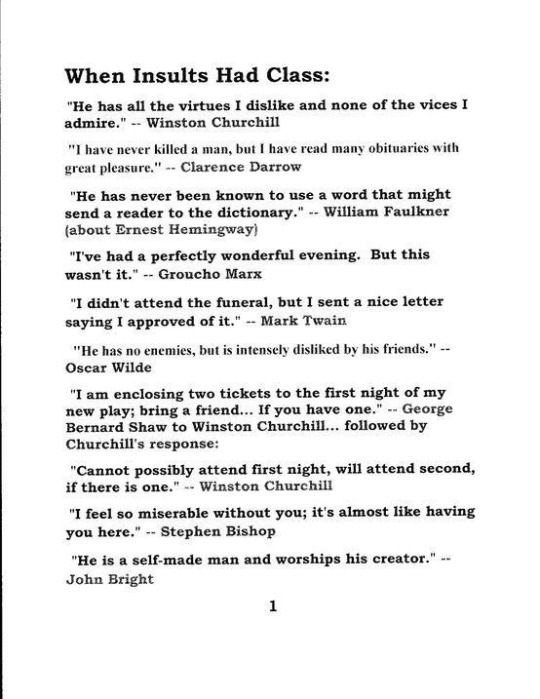
#classy insults#winston churchill#clarence darrow#william faulkner#ernest hemingway#groucho marx#mark twain#oscar wilde#bernard shaw#stephen bishop#John bright
3 notes
·
View notes
Text
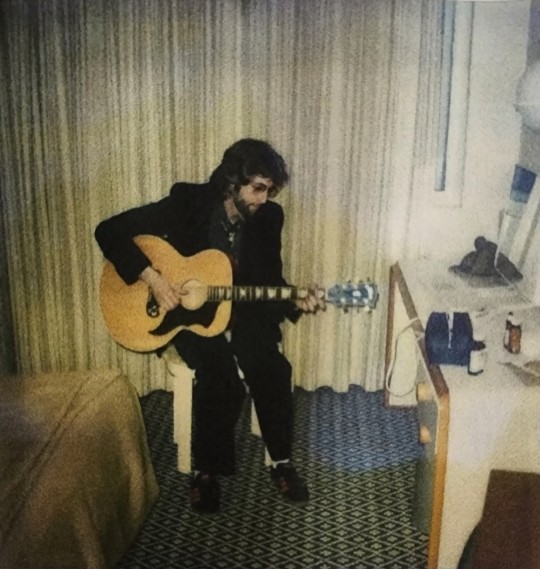
Stephen Bishop, 1978
#bish deserves more appreciation in these parts!!!!#incredible songwriter and really cool guy#stephen bishop
7 notes
·
View notes
Photo
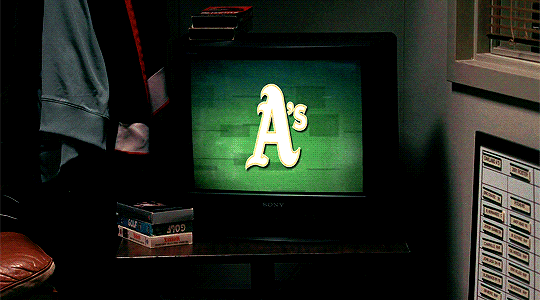
MONEYBALL 2011
I know these guys. I know the way they think, and they will erase us. And everything we've done here, none of it'll matter. Any other team wins the World Series, good for them. They're drinking champagne, they get a ring. But if we win, on our budget, with this team... we'll have changed the game. And that's what I want. I want it to mean something.
#moneyball#2011#brad pitt#jonah hill#philip seymour hoffman#robin wright#chris pratt#stephen bishop#reed diamond#brent jennings#ken medlock#jack mcgee#vyto ruginis#nick searcy#glenn morshower#casey bond#nick porrazzo#kerris dorsey#arliss howard#derrin ebert
2 notes
·
View notes
Text
THE TERMINAL LIST (2022) ★★★★☆
THE TERMINAL LIST (2022) ★★★★☆

View On WordPress
#Arlo Mertz#Arturo Castro#Chris Pratt#Constance Wu#Jai Courtney#Jeanne Tripplehorn#LaMonica Garrett#Matthew Rauch#Nick Chinlund#Patrick Schwarzenegger#Paul McCrane#Riley Keough#Stephen Bishop#Taylor Kitsch
4 notes
·
View notes
Text
Star Power (1978)
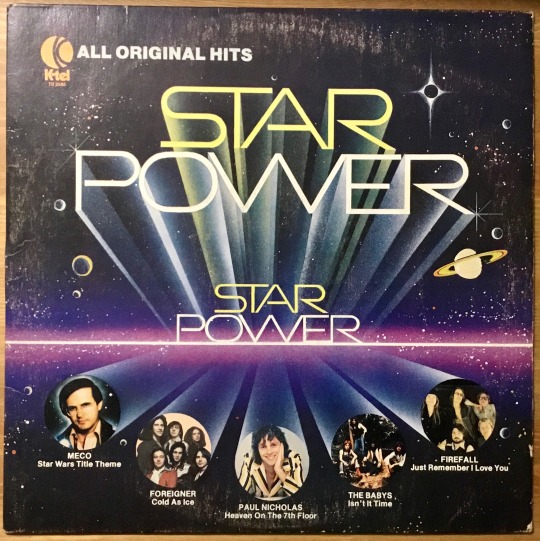
All Original Hits
K-Tel Records
#my vinyl playlist#kiss band#meco#star wars theme#foreigner#firefall#paul nicholas#england dan & john ford coley#bay city rollers#stephen bishop#paul davis#the babys#little river band#david soul#hot#brick#peter brown#sylvers#floaters#alan o’day#k tel records#classic rock#70’s music#70’s rock#album cover#album art#vinyl records#record cover
2 notes
·
View notes
Text
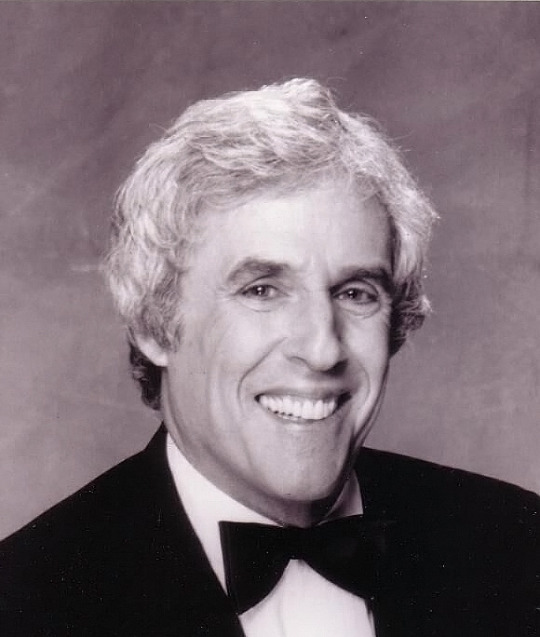

“The King of Melody,” Burt Bacharach Dead at 94
Burt Bacharach, the composer of more than 50 top-40 hits and songwriting partner of and collaborator with Hal David, Dionne Warwick, Elvis Costello and others, has died at 94 of natural causes.
The Associated Press first reported the news.
“Farewell genius,” Simply Red tweeted.
Hailed by Dave Davies as “probably one of the most influential songwriters of our time,” Bacharach, whose motto was “never be ashamed to write a melody that people remember,” is said to have composed more than 1,000 songs including “Raindrops Keep Fallin’ on My Head,” “What the World Needs Now” and “What’s New, Pussycat?”
“He was a great inspiration,” Davies said.
Bacharach in 2020 cut Blue Umbrella with Nashville singer/songwriter Daniel Tashian, causing Sawyer Brown to marvel at the composer’s triumph of “creating timeless songs” into his 90s.
“Thank you, Burt Bacharach, for all those wonderful traveling companions,” Brown wrote on Facebook, recounting the songwriter’s work with Warwick, which included 20 top-40 hits.
Bacharach’s songs were also recorded by the Beatles, the Fifth Dimension, Manfred Mann, Dusty Springfield, Christopher Cross, Roberta Flack and others. He and Costello released Painted from Memory in 1998.
“I’ll always think of Burt Bacharach as the King of Melody,” Stephen Bishop said. “His songs are timeless.”
2/9/23
#burt bacharach#dionne warwick#elvis costello#b.j. thomas#simply red#dave davies#the kinks#sawyer brown#the fifth dimension#manfred mann#dusty springfield#christopher cross#roberts flack#stephen bishop#tom jones#the beatles#hal david
28 notes
·
View notes
Text
♫ Separate Lives ♫
I was in the mood for some Phil Collins tonight … dunno why, just was! This is the only one of my most favourite ones that I haven’t played within the last year or so … last played it in 2019 … so the decision was made!
Songwriter Stephen Bishop recorded his own version for his album Sleeping With Girls for Polydor Records, released in 1985. Bishop received an Oscar nomination for Best Original…
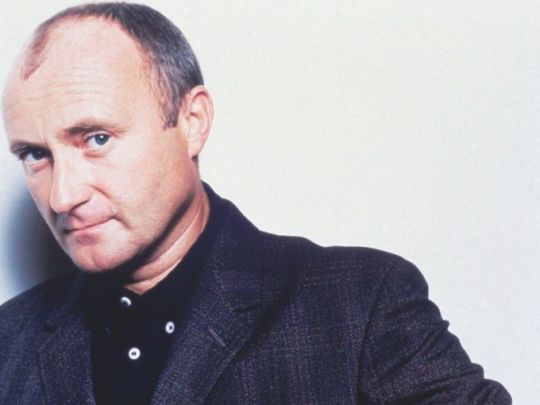
View On WordPress
0 notes
Text
youtube
0 notes
Text
Video Revew: Les Misérables, 3rd National Tour, 2000, Act I (long)
In honor of Barricade Day, I’ve decided to re-share the review I wrote some time ago of an outstanding complete Les Mis performance from yesteryear. The multi-part upload I originally reviewed has been taken down, but the whole performance can still be seen on YouTube in a single video here.
This performance by the US 3rd National Tour (a.k.a. the Marius Company) was filmed at the Ahmanson Theatre in Los Angeles, February 7, 2000.
Main Cast
Jean Valjean: Ivan Rutherford
Javert: Stephen Bishop
Fantine: Joan Almedilla
Thénardier: J.P. Dougherty
Mme. Thénardier: Aymee Garcia
Marius: Tim Howar
Enjolras: Kevin Earley
Éponine: Sutton Foster
Cosette: Regan Thiel
Grantaire/Bamatabois: Trent Blanton
Young Cosette: Stephanie Mieko Cohen
Gavroche: Christopher Carlson
“Work Song,” “On Parole,” “Valjean Arrested, Valjean Forgiven,” “Valjean’s Soliloquy”
Ivan Rutherford’s Valjean lives up to all my positive memories of the three times I saw him onstage. His voice is excellent for the role: bright, rich and mellow, yet with a hint of grit that suits the convict, and effortlessly capable of both sweetness and power. Acting-wise, he’s subtler than some other convict-Valjeans, but still portrays a fully realized, nuanced and engaging character. Other actors are more aggressive to Javert and more visibly ecstatic on “Freedom is mine…” but Ivan’s portrayal seems a bit truer to Hugo’s Valjean, who was always a quiet, self-contained man and whose hardening from his years in prison makes him even less inclined to show emotion. Yet his anger becomes clear with his increasingly fearsome responses when others reject him. The growing darkness in him is evident when he shouts at the innkeeper’s wife, especially with how delicate, polite and frightened she’s portrayed as being. Then at the Bishop’s house we see him disturbingly become “a thief in the night,” as he plots the theft of the silver in a sneering, calculating tone, and then bows his head before the Bishop in feigned abject gratitude, only to steal the silver with a sneaky, quietly growled “…flight!” rather than a wild shout. The theft definitely feels like a premeditated, malevolent act rather than an impulsive, desperate one. Yet he still conveys sympathy-earning vulnerability too, with the abject, beaten dog-like fear he shows when the Bishop first approaches him and when he thinks he’s about to be sent back to the galleys. And at the end, he gives us a truly impassioned Soliloquy, full of rage, anguish, confusion, and ultimate determination to change.
Stephen Bishop was my first Javert and his performance here is exactly the way I remember him. Tall and imposing, with a rich, robust baritone voice, and just the right attitude of dignified condescension. Well I remember his snide, disdainful “No” in response to Valjean’s ‘Yes, it means I’m free!” I remember that Arlene C. Harris, the author of the Les Misérables sequel series Pont-au-Change, wrote in her review of this cast that his Javert was too smug, too much like ‘Gaston (from Beauty and the Beast) in a police uniform,” and I’ll admit I can see a little of that here. But at the same time, he’s very professional and avoids needless aggression. He’s the only Javert I’ve seen so far who doesn’t intimidate Valjean with his nightstick on “Do not forget me, 20601!” and despite his disdain, he hands Valjean his yellow passport in a civil way, not playing the games with it (e.g. smacking it against his chest, pulling it out of his reach at first, or dropping it for him to pick up) that other actors do.
The Bishop has a very nice voice and gentle, serene bearing, though he doesn’t make as strong an impression as some others.
The 3rd National Tour was always known for its outstanding ensemble and they do indeed seem excellent so far. One thing that stands out for me, though, is their subtlety. They don’t do too much shouting when Valjean turns aggressive, nor treat him with too much physical brutality. Compared to some other productions in more recent years, the crowd scenes are definitely understated here. But it works: sometimes less is more. That said, the warders in Toulon have a more brutal edge than in some other productions, noticing every time a convict stops working and either kicking him or shoving him with a gun butt. Even later performances in this same tour toned that business down.
If I’m not mistaken, the short and stocky yet gorgeous-voiced convict who sings “The sun is strong…” is Randal Keith, who at the time would have been understudying Valjean, but later became the final Valjean of both this tour and the original Broadway production, as well as the first Valjean I ever saw in 2001.
“At the End of the Day,” “I Dreamed a Dream,” “Lovely Ladies”
Joan Almedilla was my first Fantine, and while she’ll never be my favorite in the role, I do like her. In its lower and middle registers, her voice is warm, sweet, and excellently suited to the role. Unfortunately, when she belts in the upper register, her tone becomes nasal and strident, and this annoying quality becomes more pronounced as Fantine falls into poverty and disgrace. Still, her Fantine is solidly sung and effectively acted. After a soft-spoken, frightened factory scene, she vividly depicts Fantine’s tragic transformation, infusing “I Dreamed a Dream” with raw anguish and desperation, and then endures her slow degradation through “Lovely Ladies” until it culminates in her pitifully gagging from the strong drink the ladies give her and desperately stumbling into her laughing client’s arms, the re-emerging to sing a truly fierce, bitter final verse, her former ladylike manner gone. My only quibble about her acting is that, apart from holding her chest/stomach as if in pain (although that’s something, at least), she doesn’t do much to convey her declining health.
I like the way she kisses her locket after “He filled my days with endless wonder.” It shows that the locket was a gift from Tholomyes and makes the fact that she still wears it symbolize her dream that someday he’ll come back to her, which she renounces once and for all when she sells it.
Ivan’s Valjean has excellent new dignity in his brief appearance as Monsieur Madeleine.
The ensemble work is once again outstanding. The Foreman is just as imposing and nasty as he should be, while the Factory Girl is excellent in her initial feigned friendliness as she first peers at Fantine’s letter and in her true venom as she reveals her secret. The poor sick whore in “Lovely Ladies” seems genuinely agonized and the Pimp is a nasty piece of work, grabbing her by the hair to force her to keep selling.
You’ll notice a certain tall, thin young woman whom the camera subtly yet repeatedly focuses on, particularly during “Old men, young men, take ‘em as they come…” where she’s the fierce-looking whore in yellow striking an animalistic pose on the ground. That’s a pre-stardom Sutton Foster, whom we’ll see later in this performance as Éponine.
“Fantine’s Arrest,” “The Runaway Cart,” “Who Am ?”
Joan’s Fantine is still compelling, even though her voice still tends to sound nasal. Her fear of Bamatabois and her screams of pain as he abuses her are heartrending, as are her pleas to Javert and her anguish over Cosette, but she also shows spirit and ferocity when she fights Bamatabois off and in her furious “M’sieur, don’t mock me now, I pray!” Yet again, though, she doesn’t make any real attempt to seem sick until she faints as the constables pick her up. Although I notice that just before that happens, she reaches out her hand – possibly implying that she’s already slipped into delirium and seeing Cosette.
Trent’s Bamatabois is excellently nasty. The way he erotically strokes Fantine’s arm but then roughly yanks her to him makes it clear why she wants to escape, and his subsequent throwing her around and grabbing her by the hair is brutal.Stephen’s Javert still sings with a handsome, imposing baritone voice and cuts an appropriately stern, stolid figure. Ivan’s Valjean is dignified and generally reserved at this point, but still believable. It’s interesting that on “…that I am not your man?” he holds out his hands for Javert to handcuff then and there if he sees fit. His “Who Am I?” is excellently sung and conveys his inner turmoil subtly yet convincingly. By the way, is it just me, or does he look a little bit like Ernest Hemingway? Of course this is irrelevant to his portrayal of Valjean, but I just happened to notice it.
“Fantine’s Death,” “Confrontation,” “Castle on a Cloud”
Joan’s Fantine is poignant to the end. I like that she doesn’t lie still at the beginning, but turns feebly yet restlessly from side to side: it enhances our sense of her pain and delirium. Her deathbed desperation to ensure Cosette’s future is vivid and moving.
Ivan and Stephen’s “Confrontation” is very effective, with both initially remaining calm and dignified, but the tension on both sides gradually growing until it literally bursts when Valjean smashes the chair. They both sing outstandingly too. I also like the way Valjean’s threatening Javert with the chair leg is handled – instead of being intimidated, Javert just points his nightstick right back at Valjean, and for a moment they stand frozen in “Who will strike first?” tension. But then Valjean lowers the chair leg as if he suddenly feels ashamed of himself and is now choosing to be the bigger man and avoid needless violence. Unfortunately, though, Javert won’t let him avoid necessary violence.
The video skips ahead to “Castle on a Cloud” just as Valjean and Javert start to fight, so we don’t see Valjean knock Javert out and escape, or the scene change where our last sight of Fantine’s body is juxtaposed with out first sight of Young Cosette. I’m not sure if this is a technological error or if the filmmaker did it on purpose to make the scene change more cinematic. It looks more like the latter, though.
Stephanie Mieko Cohen’s Young Cosette is an appropriately sweet, delicate waif with an adorable little voice.
Aymee Garcia is a physically and vocally imposing Mme. Thénardier whose bullying of Cosette and cooing over Young Éponine are spot-on. I’m glad she was my first. (This is a recurring theme in this performance – by the time I first saw the show in 2001, the tour had a new Valjean, Marius, Éponine, Cosette and Enjolras, but Javert, Fantine and both Thénardiers were the same.)
“Master of the House,” “Well Scene” and “The Bargain/Waltz of Treachery”
Now we reach the Thénardiers’ Act I comedy showcase scenes with the first Thénardiers I ever saw.
By this performance, J.P. Dougherty had been playing Thénardier in this tour for over ten years and he would stay another two years before finally leaving. I remember from the reviews I read as a new fan that many tour followers were thoroughly sick of his performance by the end of his run. Fortunately, I only saw him in the role once, so I can still appreciate what he does with the role. I’ll admit that compared to other Thénardiers he’s a bit lacking in energy (maybe back in 1989 and ‘90 he would have had more), but he still manages to be funny and colorful without overacting – at least apart from his goofy high-pitched wail after “Like our own, M’sieur!”
As for another complaint that reviewers sometimes aimed at his Thénardier, that he was too comic and lacking in evil vibes, I don’t think that’s a problem so far. While of course Thénardier needs to become more sinister in the later Paris scenes, I think a genuinely amiable facade is entirely fitting at first. To a lesser extent the same is true for his wife. We should believe that Fantine could have trusted this couple to take care of her precious daughter, even if we can see how slimy they really are.
Aymee’s Mme. Thénardier is excellent. Brash, crude and funny, with a big, rich, attention-grabbing voice.
Ivan’s Valjean continues to make a great impression. He knows full well that the Thénardiers are conning him and offers excellent annoyed expressions and deadpan line delivery, as well as a flash of his temper when he slams the money onto the table after Mme. T.’s verse. Yet he’s so tender and sings so sweetly with little Cosette, and his big, hearty laugh and beaming smile as he spins her around at the end is infectious. He’s truly ecstatic to become her father.
It’s nice to hear the complete preamble to “Master of the House,” especially the subsequently-cut lines about Thénardier at Waterloo.
“Look Down,” “The Robbery,” “Stars,” “Éponine’s Errand”
Comparing this video to a video I shared in the past of the same year’s London cast performing “Look Down” and “The Robbery,” I can definitely see the ways in which the London production was subtly darker and more intense than the US tour. The beggars here don’t seem as harsh or as quick to turn on each other, the pimp doesn’t abuse the prostitute when he breaks up her fight with the old beggar woman, Éponine’s entrance has her cheerfully palling around with Gavroche instead of fighting off Montparnasse’s advances (although she and Montparnasse do have such a moment off to the side later), and Marius only jostles Cosette when he bumps into her, whereas in London he knocked her down. Not that this production feels tame in any way; it doesn’t. But there’s still a clear difference.
Christopher Carlson’s Gavroche is fine, but he doesn’t have quite as much character in his voice as I’d like to hear. He sings strongly and acts well enough, but he’s just a little bit nondescript.
Kevin Earley’s Enjolras commands instant attention with his rich, powerful baritone voice. His tone is slightly reminiscent of Michael Maguire, but decidedly less trumpeting and more elegant. Between his singing, his dignified ardor, and (on a shallower note) his good looks and Hugo-accurate curly blond hair, he definitely makes a strong first impression.
I like the touch of his giving a coin to a beggar woman on the bridge. It shows that Enjolras is no poseur or detached idealist, but striving to help the poor here and now as well as fighting for a better future for them.
Eighteen years before his controversial Phantom of the Opera, Tim Howar makes a likeable first impression as Marius, with his darkly shaded, gentle yet rich voice, and his warm interactions with Éponine and newfound passion for Cosette. The fact that he’s a fairly short man alongside a 5′9″ Éponine lets them add some fresh humor to their exchange in “The Robbery,” with her holding his book high above her head, out of his reach, until he makes her let it go by tickling her stomach, and to “Éponine’s Errand,” when he kneels before her to beg her to find Cosette, only for her to effortlessly and unsentimentally yank him to his feet. Of course Hugo’s class-conscious Marius and Éponine would never be so physically forward with each other, but in the musical it’s endearing.
This brings us to the person who, for many viewers, is undoubtedly this video’s raison d’etre: Sutton Foster as Éponine. Right away it’s no surprise that of all the cast members here, she’s become the biggest star. First of all, there’s her gorgeous voice. Then there’s her fully believable acting. Her Éponine is a true street urchin: tough, scrappy, intelligent, cheeky and playful, yet with brooding moments when she’s alone, and with (thus far) subtle hints of pathos yet not a trace of syrup. I like that she seems to deliver “Little he knows, little he sees” with a bittersweet smile: she wishes he returned her love, but is still happy just to know him and be his friend. The real angst will only come when he falls in love with someone else.
J.P. and Aymee still do a good job as the Thénardiers, although some of the others in other videos I’ve shared of this scene have been more distinctive.
Even though it doesn’t get a closeup, I notice one detail that I remember reading about in reviews of this cast. Regan Thiel’s Cosette doesn’t passively let Marius shield her from Montparnasse during the robbery, but struggles to break free from his protective arms and run back to her imperiled father. At one point she has both her feet kicking in the air!
Last but far from least, Stephen’s Javert is still as stern, imposing, driven and rich-voiced as ever. The dark lighting in “Stars” unfortunately makes him hard to see on camera during his own solo, but we can hear him perfectly well, and his sumptuous, impassioned baritone gives us a magnificent rendition of the song.
“The ABC Café/Red and Black,” “Do You Hear the People Sing?” “In My Life”
Whenever Kevin’s Enjolras and Ben Davis’s Feuilly are in the same shot, I can’t help but think “Look, twins!” If I hadn’t already known that Ben was Kevin’s understudy, I would have probably guessed it from their similar curly blond hair. Since the actor playing Joly also looks similar to Tim’s Marius, whom he would have understudied, I assume whoever chose this cast had firm ideas of what they wanted both Enjolras and Marius to look like.
Kevin is a natual-born Enjolras. Idealistic, dignified yet passionate, stern yet devoted to his friends, handsome and Antinous-like in appearance, and with a gorgeous baritone voice. His sound combines some of the earthy power of Michael Maguire’s with some of the elegance of Anthony Warlow’s, so if you’ve always thought your ideal Enjolras would combine the traits of both, look no further. I also notice that as he goes around the café and sings, he touches his friends more than any other Enjolras I can remember. So many shoulder pats! It’s a small detail, but it does enhance the sense of intimacy between Enjolras and his friends, making him more than just an aloof idealist without detracting from his dignity.
Trent Blanton’s Grantaire is deliciously wild. The audience gives him a good laugh, and rightfully so, when he opts to perch on the back of Marius’s chair and drape his whole body over Marius on “I am agog, I am aghast…” Then we get the infamous “Don Juan” business, first with the rolled-up paper, then with the wine bottle, both of which are snatched away in turn by an embarrassed, indignant Marius while all his friends applaud.
Tim’s Marius is endearingly earnest and serious about his new passion in “Red and Black,” and then overwhelmed with joy when Cosette is finally within his sight. A bit too much so, as when Éponine is taking a moment to look at her former foster-sister through the gate, he inconsiderately grabs her and pulls her out of the way so he can gaze at Cosette himself. As Hugo said, love makes a man forget both to be evil and to be good. At least he means well, as a moment later he pours out his gratitude to Éponine and gleefully spins her around.
As far as I know, Regan was the first blonde Cosette in a replica production. I can only assume that a brown wig wouldn’t have suited her complexion. It’s a little bit strange to see her after both Fantine and Young Cosette were not only both brunette, but both Asian. Still, she does a fine job in the role. Her voice is a sweet, pretty soprano, although her vibrato is slightly heavy and her high notes are ever-so-slightly strident, and she fully inhabits the character, portraying her with a gentle, earnest demeanor, yet with spirit too, brimming with yearning and excitement for her new love, and convincingly angry and frustrated on “In my life, I’m no longer a child…” yet without being bratty.
I’ve said it once and I’ll say it again: I don’t care much for the way Ivan angrily grabs Cosette’s shoulders on “You will learn!” His Valjean always did this no matter when or where he performed the role. Still, it is clear how deeply he cares for her, and the warm, earnest way he grasps her hand on “There are words that are better unheard…” shows that he doesn’t want just to shut her down, but to make her understand that his secrets are for her own good. The shoulder-grab is just a burst of desperation when she persists.
Sutton’s Éponine is beautifully poignant in her few lines, and the ensemble work is excellent, as always.
“A Heart Full of Love,” “Attack on Rue Plumet,” “One Day More”
I remember from the reviews I read as a middle schooler that Tim and Regan’s Marius and Cosette were a much-beloved pairing. Not least because they were dating in real life, although it didn’t last long after they left the show. (Tim’s eventual first wife was another beloved Les Mis alumna – Ruthie Henshall.) At any rate, they offer a lovely rendition of their romantic duet: gentle, earnest, full of sweet disbelief and subtle rapture, and beautifully sung.
Sutton’s Éponine is touching in her quiet heartache,then beautifully fierce and powerful as she defends the Rue Plumet house from her father and the gang. I love the way she leaps onto Thénardier’s back to stop him from reaching the gate, and her raw, screechy scream is an epic moment.
It’s nice to see Éponine’s subsequently-cut exchange with Montparnasse. It’s certainly a good character moment for this Montparnasse (Matt Clemens, I think), who seemingly considers it perfectly normal to grope Éponine with his knife to her throat while talking about a completely different subject.
J.P. does an excellent job of shedding the amiable facade of his earlier scenes and showing us Thénardier’s ruthlessness. At first he plays the affectionate father he always has on “Éponine, get on home…” but when Éponine rebels, he shows his true colors as he yanks her away from the gate by her belt and snarls “Don’t interfere!” and then in the horrifying moment when he slaps her to the ground.
Kudos to Ivan for how panicked he sounds on “My God, Cosette! I heard a cry in the dark!” That’s the true voice of a father who thinks his child is in danger!
Unless I’m mistaken, Brujon is Randal Keith – my first Valjean a year after this performance. I think he’s also the unnamed student who carries Gavroche on his shoulder in “One Day More” (let’s say it’s Bahorel, though he wouldn’t have been credited as such).
“One Day More” is exhilarating, just as it should be.
#les mis#les miserables#performance review#bootleg#video#us tour#3rd national tour#musical#act i#2000#los angeles#ivan rutherford#stephen bishop#joan almedilla#j.p. dougherty#aymee garcia#kevin earley#tim howar#sutton foster#regan thiel#trent blanton#complete performance
5 notes
·
View notes
Text

BOO ME ALL YOU WANT BUT YOU KNOW I AM NOT WRONG.
#i’m sorry i truly am#but you know i’m right.#as much as i adore tony and peter slash srs#BOO ME ALL YOU WANT#captain marvel#ms marvel#carol danvers#kamala khan#marvel#peter parker#tony stark#kate bishop#clint barton#america chavez#stephen strange#hawkeye#iron man#spider man#doctor strange#GWEN SPEAKS!!!!
268 notes
·
View notes
Text




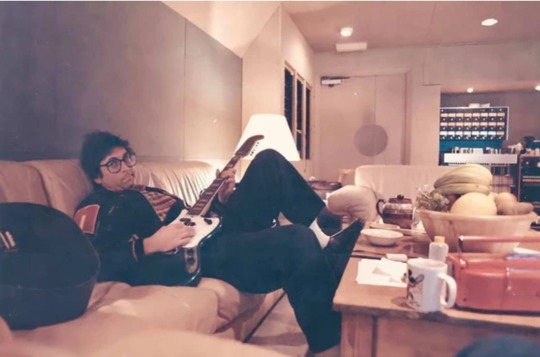

Stephen Bishop photodump :)
3 notes
·
View notes